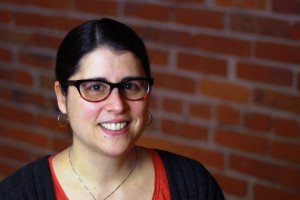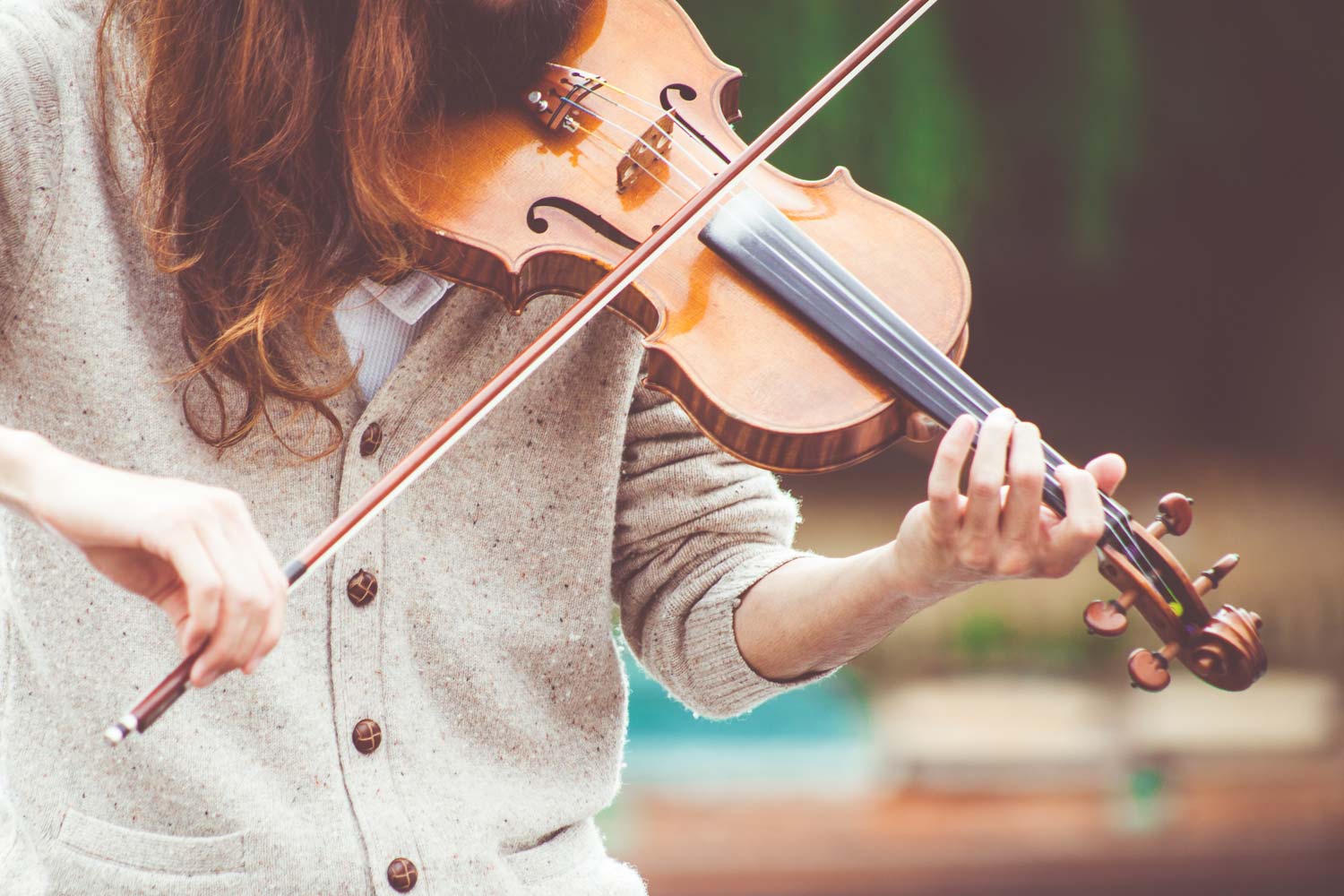What does music reveal about the nature of integration? Why does the conversation between theology and psychology require such deeply personal work? How can we continue to be rooted in our theological traditions and identities while still letting down our walls and inviting other voices to our table? In episode 8 of text.soul.culture, Dr. Chelle Stearns—Associate Professor of Theology at The Seattle School—joins Dr. J. Derek McNeil to discuss her own integrative instinct and the ways in which she has more fully found herself and the presence of the Spirit within the space of dissonance.
The Dialogue
How did theology choose you?
Chelle: I had a strange entry into theology. I started in biblical studies and thought systematic theology was boring. It wasn’t until a professor reminded me that I was a violinist that I started to become curious about Christianity and the arts. In asking what it meant to be a violinist and a Christian, I found a new entryway into trinitarian theology. Soon enough, the questions posed within systematic theology became alive to me. Theological phrases like “unity in diversity” took on new life when I played the Bach Fugue, for example.
How has music played a role in shaping your integrative instincts?
Chelle: Music creates a space to theologize or philosophize about things that shouldn’t seemingly fit together. When you create music and song with others, you don’t know the whole. You simply know you are creating something far beyond what you could create on your own. The more voices are themselves and bring their own strength, the more everyone can sing. Of course, it’s threatening to have all of the colors coming together. But integration is not about fitting pieces together in a preconceived way; instead, it creates something unexpected, a sound you have never heard.
What is the dance between theology and psychology for you?
Chelle: I think we have a great opportunity to bring the two fields together here, but the work can be difficult. Even the same terminology doesn’t always mean the same thing between the two fields. At The Seattle School, theological language is actually a minority language, so I have been challenged to connect it to the psychological landscape. Take the word “sin,” for example. In psychology, there is no category for sin, but psychologists talk about brokenness in many ways. Integration between the two fields requires a much deeper understanding of what it means to be human. Sin must be considered beyond a single individual experience; it must be approached in a much more comprehensive way.
What has been your experience around dissonance in your work here?
Chelle: A colleague once told me that you should leave an institution when you grow tired of students’ questions. That has yet to happen to me here. I remember one student’s question in particular. She asked: What does the doctrine of the resurrection of the body do for women and children I’m going to work with who have been trafficked? My immediate thought was that this doctrine could do a lot for this group of people, but I was challenged to struggle in the place of dissonance between what is to come and what is now for a group of people who might see a theological concept much differently than I do. The artist Makoto Fujimura talks about borrowing our humanity from the future and living it now. All of us, and all of the people with which we work, live with some level of internal dissonance—seeing who we are called to be and recognizing who we are in the moment. What I have found is that it’s right there in the dissonance that the Holy Spirit plays. It’s right there that God meets us. Yes, it requires work, but within dissonance we find ourselves and we find God. Ultimately, dissonance continues as we move outside of ourselves to the world.
What do you hope for your students as you invite them into this journey?
Chelle: My hope for students is that they don’t get stuck as they deal with dissonance. Oftentimes, students get stuck on one thing they don’t agree with and throw out the rest as invalid. Again, integration is a lot of work, and we ask a lot of our students. Our assignments can be extremely disruptive to students’ lives, but if they are brave enough to stay in the churn, they will often arrive at the best theological questions. I have to also remember that we can’t be brave all the time; if a student is not able to be brave one day, I can still hold hope for them for another day.
What do you hope for the school to become in light of who you hope to become?
Chelle: Though I sometimes think I would like all my students to just agree with me, the real dream is for students to continue to have suspicion. The real dream is to continue to have the capacity to bring in different voices and not just listen to our favorite ones. We should constantly be asking: Who do we need to invite in? This dream costs a lot: we might be wrong; we might need to ask different questions; we might have to set down assumptions. We already live out this dream as a school, and the approach has challenged me. Rather than taking me further away from my convictions, I have come to know God more deeply—in both my spiritual life and theologically. I’m reminded of Jeremy Begbie’s example about tradition. He said that we often see tradition as our orchard with all the right bounds around it. However, a healthy orchard is one that has deep roots. The more rooted we are, the more we can take down our walls, invite others in, and still remain rooted to our identity. We can still hold to the reality that God will continue to be God; we simply might need to ask different questions. We are invited to relationship, and He always brings us back to life.
Highlights and Takeaways
- What integration requires: a listening for not only what we like but all the possibilities
- Why students might often feel wobbly at The Seattle School as they are asked to do parallel processing
- How our “most important questions” might need to change as we get to the real work of integration
- When students who are stuck with bigger questions are actually stuck with personal questions
- Why the dream of The Seattle School to never stop asking questions and to always ask who should be invited to the conversation is a difficult one to maintain
- “This is a movement rather than a prescription, which can be frightening and a different type of Christian experience.”
About Dr. Chelle Stearns
 Dr. Stearns has a Ph.D. in Systematic Theology from University of St. Andrews in Scotland, a master’s degree in Christian Studies from Regent College and an undergraduate degree in music from Pacific Lutheran University. Her academic work has focused on the interaction between theology and music, and she loves to talk about the Christian imagination. She is also passionate about trinitarian theology. As one student recently remarked, “You really do dig this trinitarian stuff, huh?” Read more about Chelle and her work here.
Dr. Stearns has a Ph.D. in Systematic Theology from University of St. Andrews in Scotland, a master’s degree in Christian Studies from Regent College and an undergraduate degree in music from Pacific Lutheran University. Her academic work has focused on the interaction between theology and music, and she loves to talk about the Christian imagination. She is also passionate about trinitarian theology. As one student recently remarked, “You really do dig this trinitarian stuff, huh?” Read more about Chelle and her work here.
About text.soul.culture
Hosted and curated by Dr. J. Derek McNeil, Academic Dean, text.soul.culture is guided by a commitment to understanding narrative, wrestling with intersections, resisting reactivity, and fostering radical hospitality. Every other week, Derek is joined by faculty members, alumni, visiting thought leaders, and other conversation partners to explore what it means to foster wisdom and imagination for a world in need of complex thinkers and healers.

